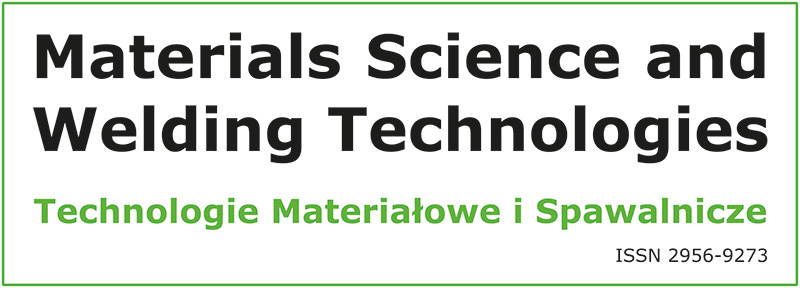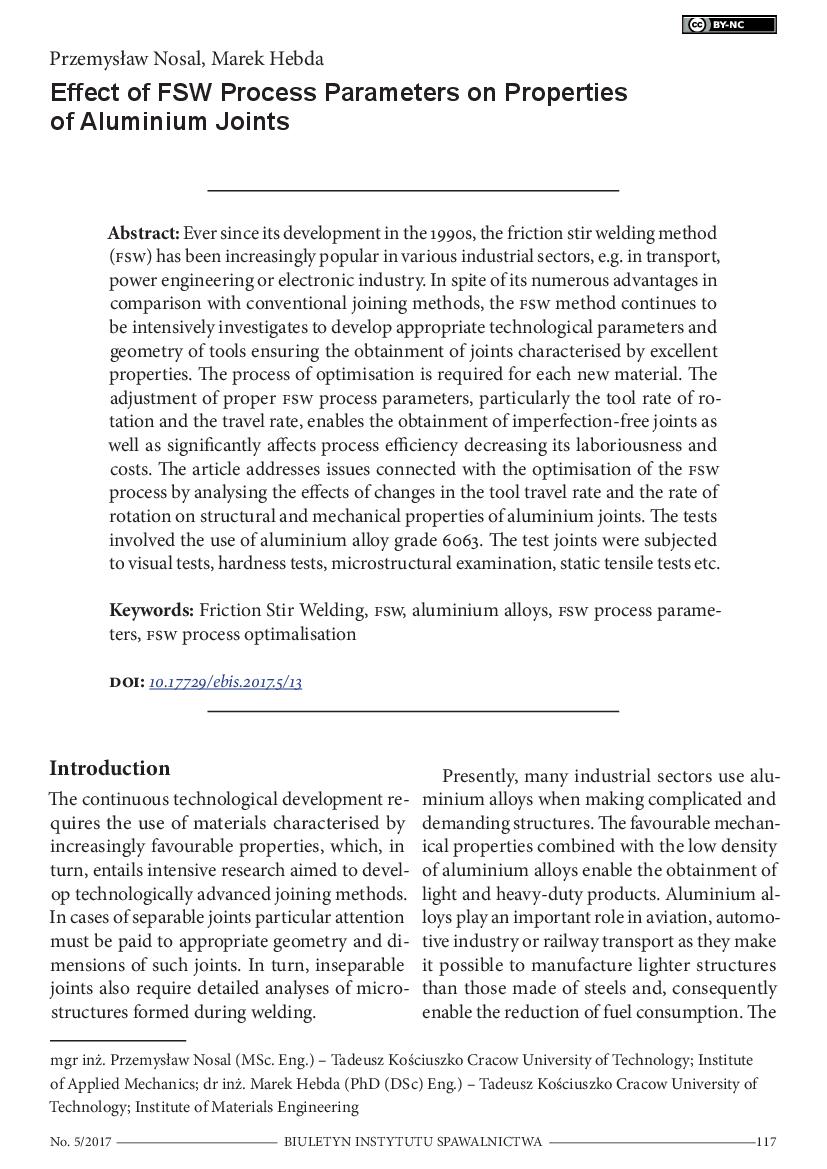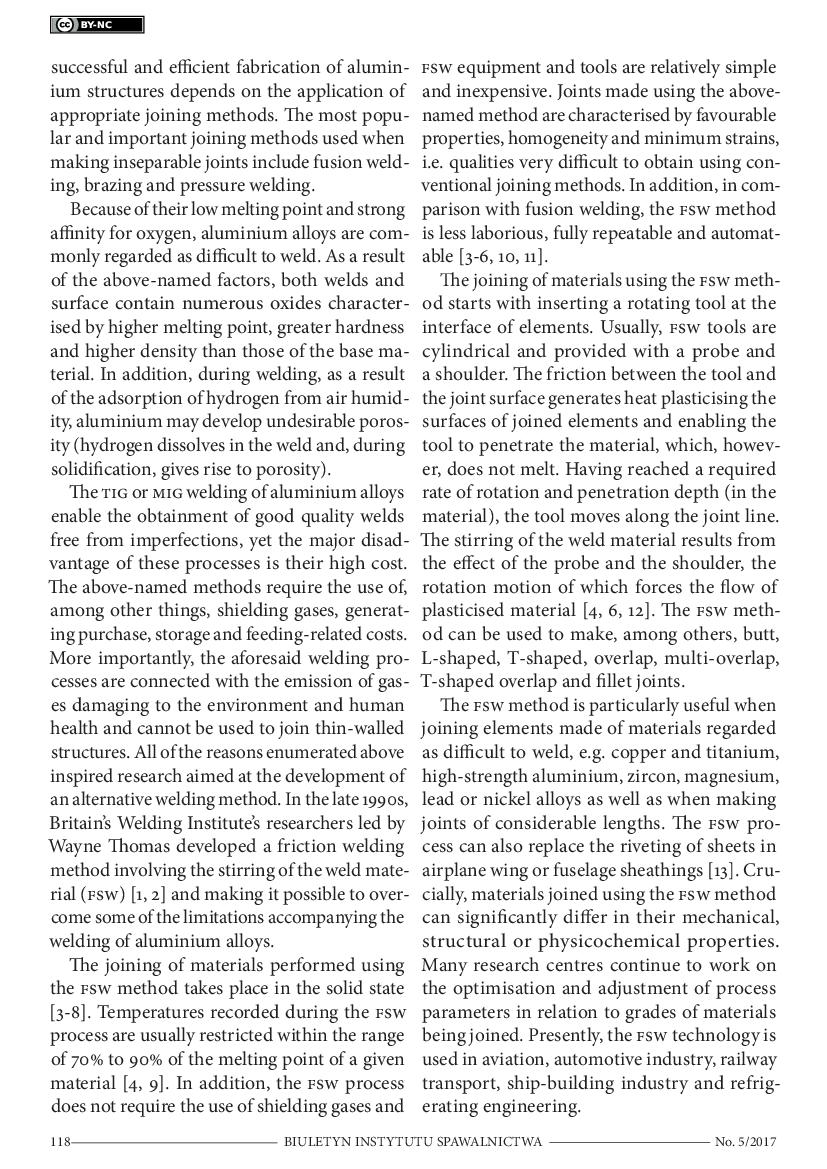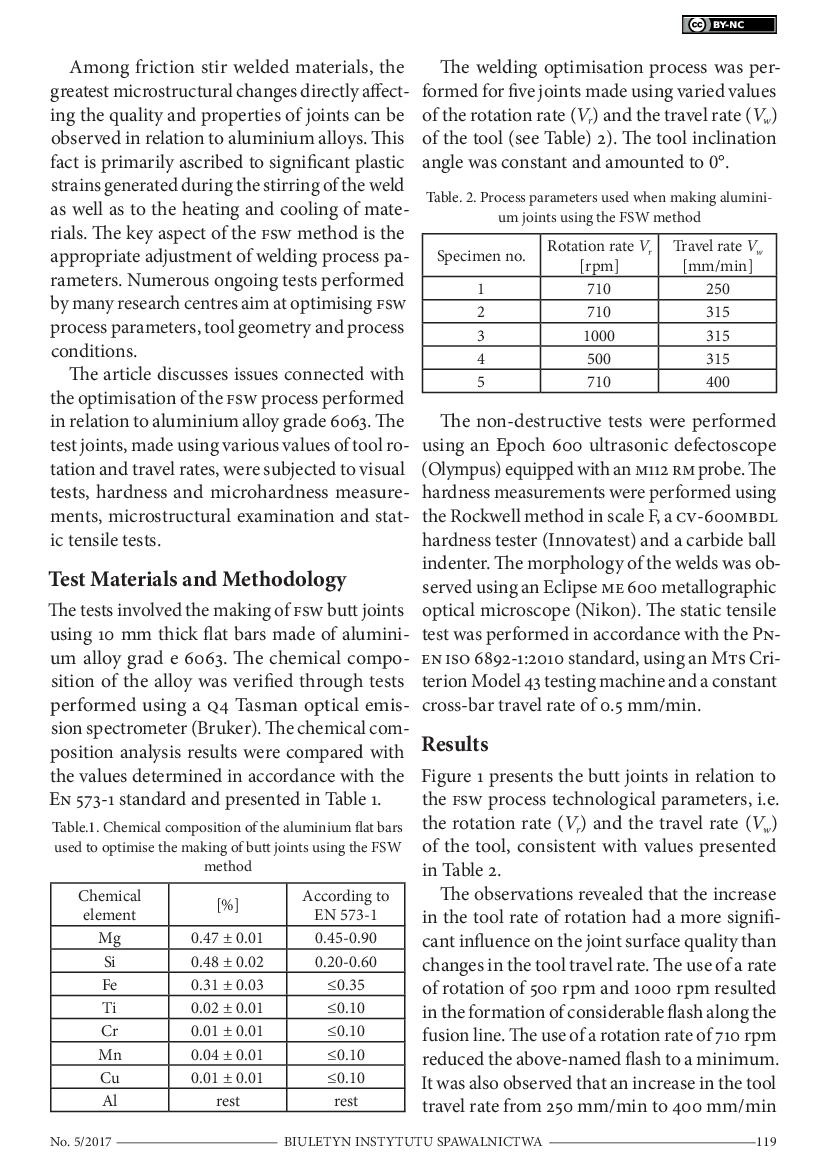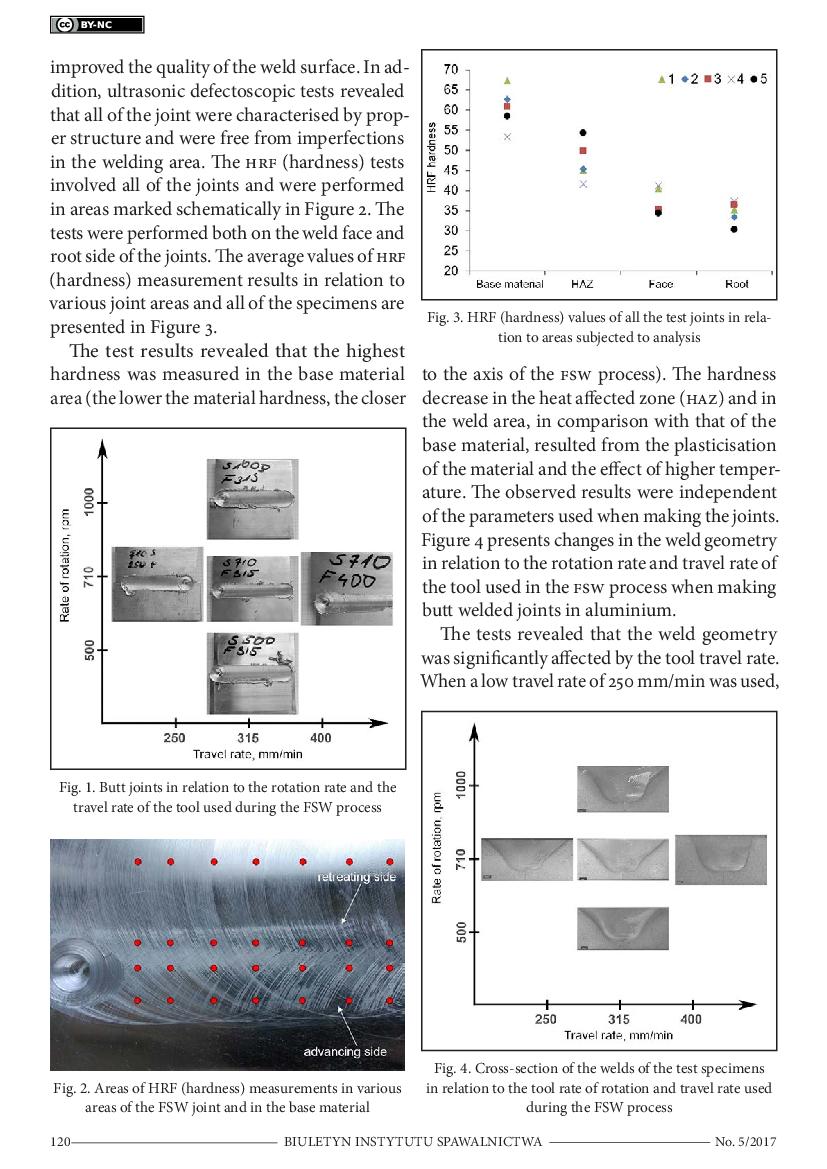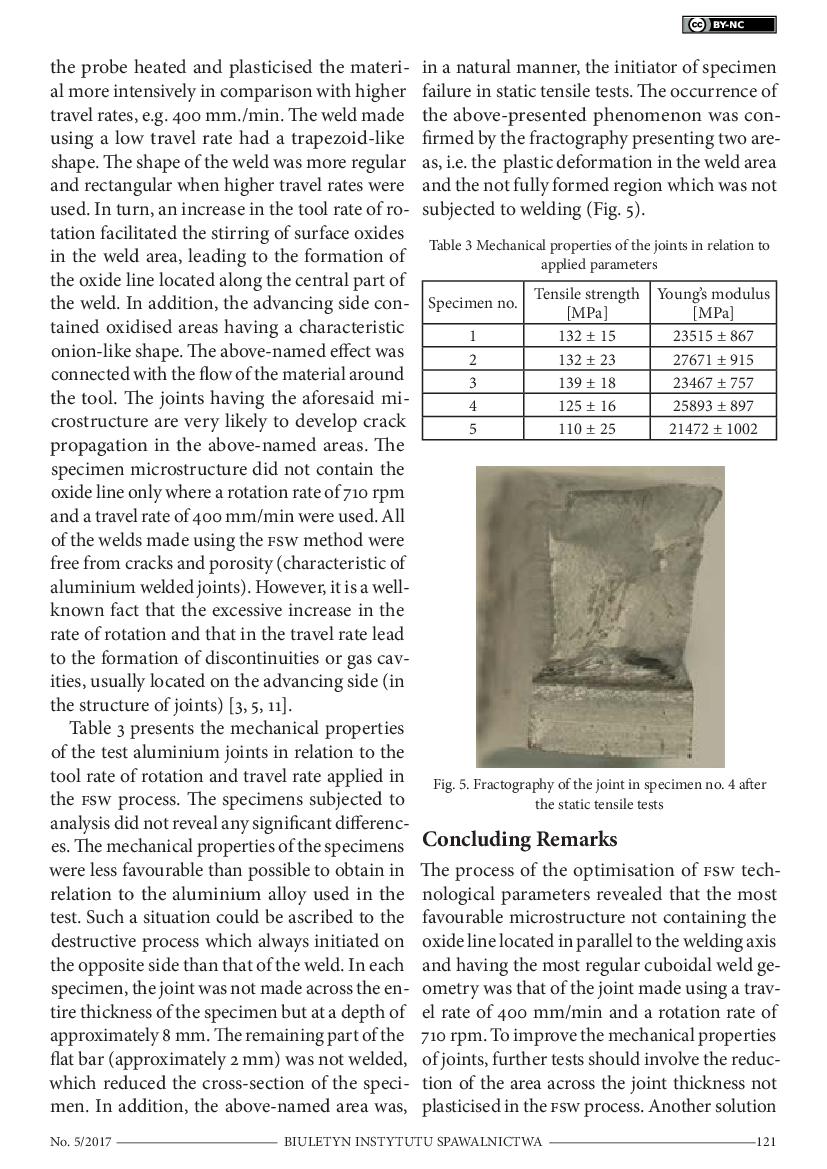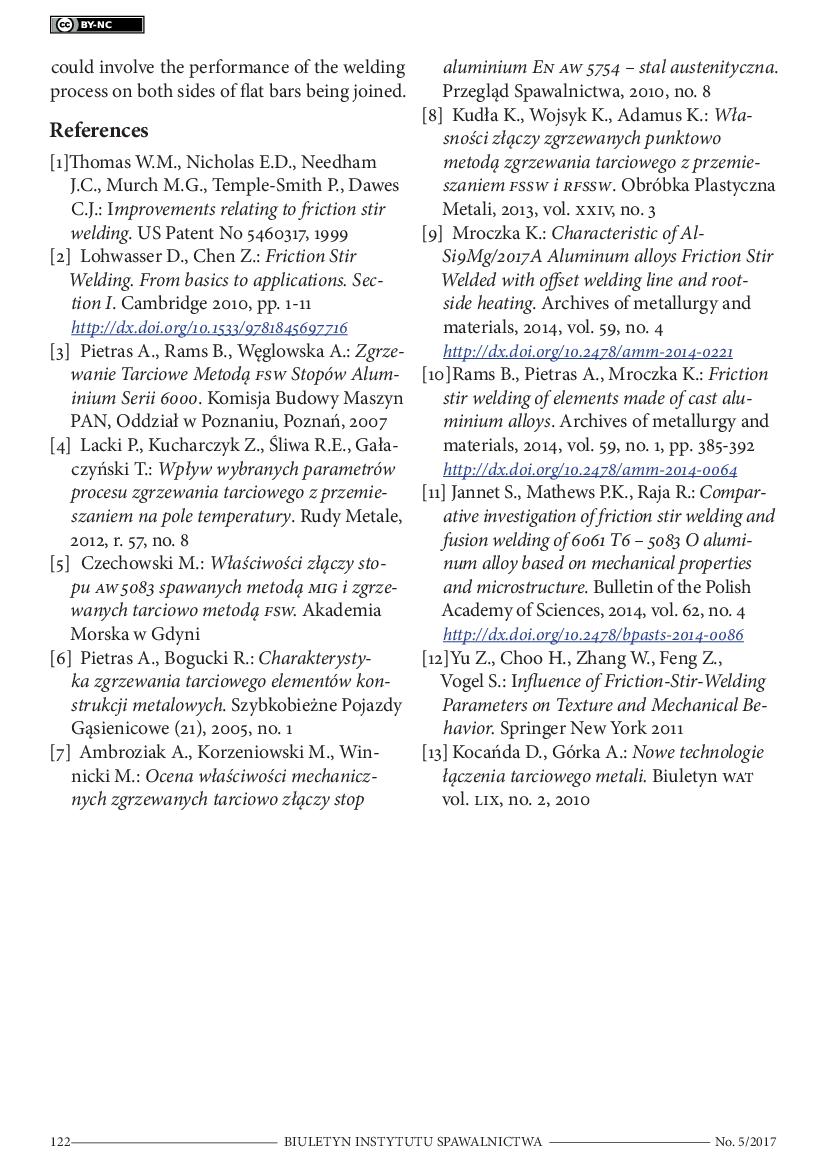Effect of FSW Process Parameters on Properties of Aluminium Joints
Ever since its development in the 1990s, the friction stir welding method (FSW) has been increasingly popular in various industrial sectors, e.g. in transport, power engineering or electronic industry. In spite of its numerous advantages in comparison with conventional joining methods, the FSW method continues to be intensively investigates to develop appropriate technological parameters and geometry of tools ensuring the obtainment of joints characterised by excellent properties. The process of optimisation is required for each new material. The adjustment of proper FSW process parameters, particularly the tool rate of rotation and the travel rate, enables the obtainment of imperfection-free joints as well as significantly affects process efficiency decreasing its laboriousness and costs. The article addresses issues connected with the optimisation of the FSW process by analysing the effects of changes in the tool travel rate and the rate of rotation on structural and mechanical properties of aluminium joints. The tests involved the use of aluminium alloy grade 6063. The test joints were subjected to visual tests, hardness tests, microstructural examination, static tensile tests etc.
 1 / 6
1 / 6
 2 & 3 / 6
2 & 3 / 6
 4 & 5 / 6
4 & 5 / 6 6 / 6
6 / 6
